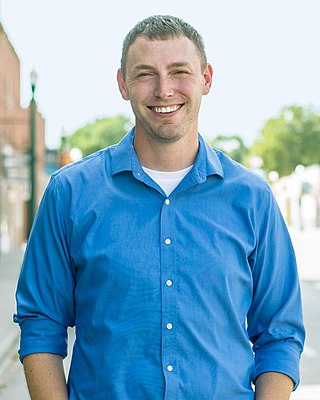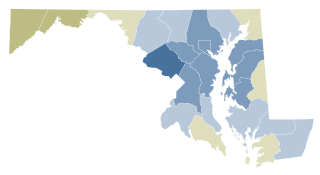The Women's Health and Human Life Protection Act was a state law passed by the South Dakota State Legislature in early 2006. It emerged as an effort to overturn Roe v. Wade via enacting a ban on abortion in the state of South Dakota. The law was repealed by voter referendum on November 7, 2006.
The South Dakota Open and Clean Government Act, or Initiated Measure 10, was a South Dakota initiative that would ban taxpayer-funded lobbying, stop the exchange of campaign donations for state contracts, and open a website with information on state contracts. The Open and Clean Government Act was proposed as a citizen-initiated state statute and appeared on the November 4, 2008 ballot.
The South Dakota Small Investors Protection Act is also known as "Initiated Measure 9". This citizen initiated constitutional amendment appeared on the November 4, 2008 general election ballot in South Dakota.

The legality of abortion in the United States and the various restrictions imposed on the procedure vary significantly, depending on the laws of each state or other jurisdiction, although there is no uniform federal law. Some states prohibit abortion at all stages of pregnancy, with few exceptions; others permit it up to a certain point in a woman's pregnancy, while some allow abortion throughout a woman's pregnancy. In states where abortion is legal, several classes of restrictions on the procedure may exist, such as parental consent or notification laws, requirements that patients be shown an ultrasound before obtaining an abortion, mandatory waiting periods, and counseling requirements.

Cannabis in South Dakota is legal for medical use as of July 1, 2021, having been legalized by a ballot initiative on November 3, 2020. Prior to then, cannabis was fully illegal, with South Dakota being the only U.S. state which outlawed ingestion of controlled substances. Testing positive for cannabis can be a misdemeanor offense. South Dakota would have become the first state in US history to legalize recreational and medical cannabis simultaneously, but an amendment legalizing recreational marijuana that was approved in the same election was struck down as unconstitutional the following February. The challenge claimed the amendment violated Amendment Z, the "Single-Subject Rule". The decision was appealed to the South Dakota Supreme Court, which upheld the lower court's decision on November 24, 2021.

John Manuel Thurston is an American politician who is the current Secretary of State of Arkansas; he was elected in November 2018, and won re-election in 2022. In August 2023, Thurston announced that he would run in a special election for state treasurer in 2024, which he later won.
Abortion in Arkansas is illegal except when it is necessary to save the life of the pregnant individual. Doctors determined to have performed an abortion face up to 10 years in prison and fines up to $100,000.
Abortion in Montana is legal at most stages of pregnancy. The number of abortion clinics in Montana has fluctuated over the years, with twenty in 1982, twelve in 1992, eight providers of which seven were clinics in 2011, and five clinics in 2014. There were four clinics from 2015 to February 2018 when All Families Healthcare clinic in Whitefish reopened. There were 1,690 legal abortions in 2014, and 1,611 in 2015.
Abortion in Nevada is legal up to the 24th week of pregnancy, under the Nevada Revised Statutes chapter 442, section 250; and after 24 weeks if the pregnancy could be fatal for the mother. 62% of adults said in a 2014 poll by the Pew Research Center that abortion should be legal while 34% said it should by illegal in all or most cases. The 2023 American Values Atlas reported that, in their most recent survey, 76% of Nevadans said that abortion should be legal in all or most cases. Legislation by 2007 required informed consent. Attempts were successfully made to pass abortion legislation in May 2019, being pushed through a largely Democratic controlled state legislature. The number of abortion clinics in Nevada has declined over the years, with 25 in 1982, seventeen in 1992 and thirteen in 2014. There were 8,132 legal abortions in 2014, and 7,116 in 2015. Due to the high level of support for abortion rights in the state, continued access to abortion is supported by all parties, including the Republicans.
Abortion in South Dakota is illegal. Anyone who induces an abortion is guilty of a Class 6 felony. An exception is included to "preserve the life of the pregnant female," given appropriate and reasonable medical judgment.

Jon Hansen serves as a representative for the 25th Legislative District in the South Dakota House of Representatives. A member of the Republican Party, he formerly served as the Speaker pro tempore of the South Dakota House of Representatives.

2022 Michigan Proposal 3, the Right to Reproductive Freedom Initiative, also known as Reproductive Freedom for All, was a citizen-initiated proposed constitutional amendment in the state of Michigan, which was voted on as part of the 2022 Michigan elections. The amendment, which passed, codified reproductive rights, including access to abortion, in the Constitution of Michigan.
The following is a list of ballot measures, whether initiated by legislators or citizens, which have been certified to appear on various states' ballots during the 2024 United States elections as of September 6, 2024.

Question 6 was a voter referendum to allow voters to approve or reject a law passed by the Maryland General Assembly in 1991 to codify the U.S. Supreme Court's decision in Roe v. Wade. The referendum was approved by 61.7% of voters on November 3, 1992.

South Dakota Amendment G was a proposed constitutional amendment that appeared on the ballot on November 5, 2024. If passed, the amendment would have established a right to abortion in the Constitution of South Dakota up until approximately the beginning of the third trimester of pregnancy. The amendment failed to pass, making it the second referendum about abortion since Dobbs to come out as anti-abortion and preserve the state's ban.

2024 Colorado Amendment 79 was a constitutional amendment that appeared on the November 5, 2024 ballot. The amendment established a right to abortion in the Constitution of Colorado and repealed a constitutional ban on public funding for abortions. The amendment passed, surpassing the 55% supermajority vote required for the amendment to be approved.

Arizona Proposition 139 is a constitutional amendment that was approved by voters on November 5, 2024, establishing a right to abortion in the Constitution of Arizona up until fetal viability.

2024 Missouri Constitutional Amendment 3, also known as the Right to Reproductive Freedom Initiative, is a proposed constitutional amendment that appeared on the ballot on November 5, 2024. The initiative amended the Constitution of Missouri to legalize abortion in Missouri until fetal viability. The amendment narrowly passed.

Initiative 128 was a ballot initiative that appeared on the ballot on November 5, 2024, to establish in the Constitution of Montana a right to abortion up to fetal viability. The initiative was approved by 58 percent of voters.

2024 Nevada Question 6 is a proposed constitutional amendment for the state of Nevada in the United States, that would protect the right to an abortion until fetal viability, which is generally considered about 23 or 24 weeks, or when necessary to protect the life or health of the pregnant patient. The Question initially appeared on the November 5th, 2024, ballot in Nevada. The ballot measure was approved with 64.4% of the votes. As Question 6 was approved in 2024, a second vote will be held on November 3, 2026.













